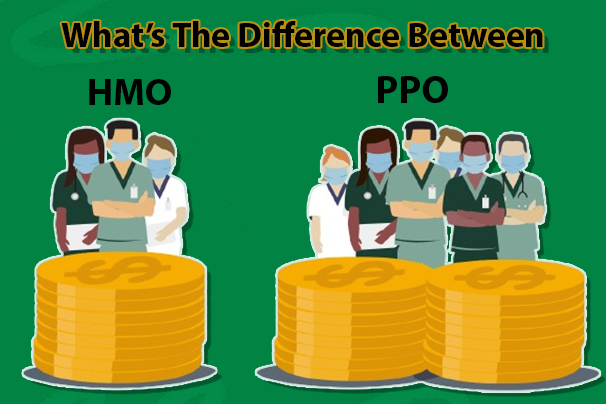Both HMO vs. PPO offer healthcare coverage, especially dental insurance, but what’s the difference between these two coverages? Dental insurance plans offer it difference from insurance companies, such as preferred provider organizations (PPOs) vs. health maintenance organizations (HMOs). Moreover, both types of insurance (PPO vs. HMO) cover preventive, basic, and rehabilitative care, but they have some differences in their cost and flexibility.

The most popular kind of commercial dentistry plans are dental PPOs, which provide greater dentist selection options. Meanwhile, dental HMO plans provide reduced rates, but the majority of services are only covered by in-network dentists. When choosing between HMO and PPO plans, take your needs, financial situation, and dental preferences into account.
Furthermore, consider each plan type’s possible cost savings, coverage for out-of-network services, and network limitations. Before enrolling in an HMO vs PPO, it’s crucial to understand the operation, what’s the difference, and the effectiveness of each dental insurance plan.
Dental Insurance HMO
A dental insurance HMO emphasizes preventative care while offering coverage at a reduced cost. This program is intended to save costs and promote routine dental checkups and visits. Moreover, the majority of dental insurance HMO plans do not contain exclusions for missing teeth or pre-existing diseases, and any out-of-pocket expenses are specified clearly.
Additionally, you must designate a main dental facility to oversee and coordinate your oral health requirements if you decide to participate in a dental HMO plan. The main dental institution or dentist must first file a recommendation if a specialist’s treatment is required. Using in-network dentists is a requirement for coverage under dental HMO plans.
Benefits of Dental Insurance HMO
Positively, HMOs provide:
- Reduced rates
- No yearly cap
- Without a deductible
- Determine copayments.
HMOs do, however, have a few disadvantages:
- Mandate that you choose a primary care dentist.
- Non-internet coverage
- Restricted dental network in contrast to PPO
- Needs referral
Dental Insurance PPO
PPO dental plans have higher out-of-pocket expenses than DHMO plans, but they also provide you more options when it comes to selecting a dentist or dental office. It usually allows you to see a specialist or change dentists without a primary care dentist’s recommendation. Additionally, it also has a wider network of dental providers.
Moreover, choosing a primary care dentist is not necessary when signing up for a PPO dental plan. If a PPO dental plan is something you are thinking about, bear in mind that you will probably have to satisfy a deductible in addition to paying a higher premium. Furthermore, the majority of PPO dental plans include an annual cap on the total amount of coverage.
Benefits of Dental Insurance PPO
- Generally more freedom in choosing a dentist or dental facility
- A referral is not necessary to see a specialist for treatment.
- You can be eligible for a portion of the cost of care from an out-of-network dentist, depending on the plan.
- Increased availability of dentists in the network
Disadvantages of Dental Insurance PPO
- Greater premiums compared to DHMO plans
- Usually carries a deductible
- PPO dental plans typically include an annual coverage cap.
- A PPO dental plan may have greater copayments than a DHMO plan.
Each insurance plan has its own benefits and restrictions. It all boils down to selecting the plan that works best for you and your family.
Difference Between Dental Insurance HMO vs. PPO
It is important to comprehend the differences between Dental Health Maintenance Organizations (HMOs) and Preferred Provider Organizations (PPOs). These plans are the two most common insurance plans in the US, before selecting one over the other.
The following are the main differences between PPO vs. Dental HMO insurance plans:
Networks
HMO is usually a smaller network of dentists included in these plans. It offers referrals from the main dentist that are frequently required for specialist appointments, and patients are required to choose their primary dentist from this network.
Meanwhile, PPO plans provide customers with the freedom to select any dentist, in-network or out-of-network, thanks to a larger network of dentists. Because of their negotiated rates, in-network dentists typically result in cheaper out-of-pocket costs.
Recommendations
To see a specialist under the HMO plan, a patient must obtain a recommendation from their primary care physician. Without this, their insurance may not pay the full cost of their dental care.
While with a PPO plan, patients may usually see specialists without a referral, giving them more options when it comes to dental professionals.
Prices
Plans for dental HMOs sometimes include reduced monthly premiums and out-of-pocket expenses for standard dental treatment. Though copayments could be necessary for each appointment.
Meanwhile, PPO plans provide greater freedom in choosing a dentist, but they may also have higher rates. In contrast to HMO plans, out-of-network providers sometimes have more coverage but receive lower payment rates.
Allowances and Annual Caps
HMO plans make dental treatment more accessible by having yearly maximums and deductibles that are either low or nonexistent. However, PPO plans allow more freedom in provider selection but may have higher deductibles and yearly maximums.
Protection against Out-of-Network Care
HMO plans often emphasize using in-network doctors and may not cover non-emergency out-of-network care. While PPO plans frequently cover some out-of-network treatment, they do so at a lesser rate of payment than in-network providers.
Basic and Preventive Services
Preventive treatment, including cleanings, regular examinations, and X-rays, is given priority in dental HMO plans. In addition to covering standard dental operations like fillings, PPO policies also cover preventative care.
A dental HMO vs. PPO should be chosen based on your choices, financial situation, and the value of provider variety, flexibility, and knowing what’s the difference. Furthermore, pay close attention to the plan’s specifics, such as waiting periods, exclusions, and coverage limitations.





